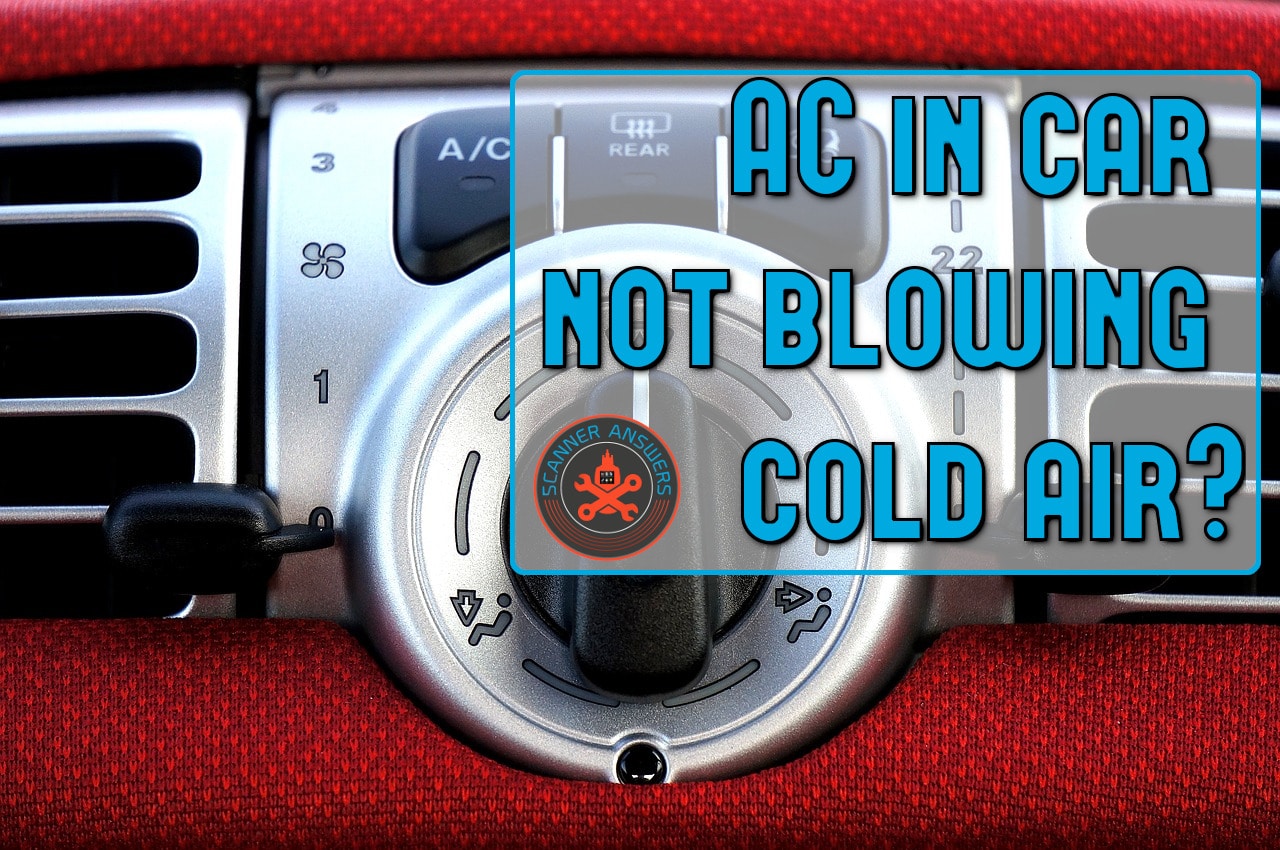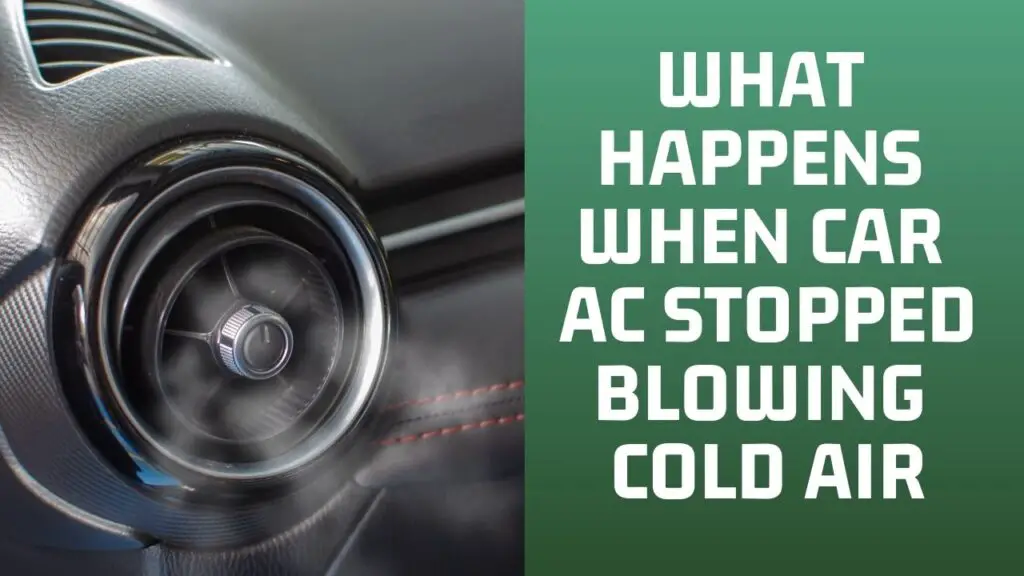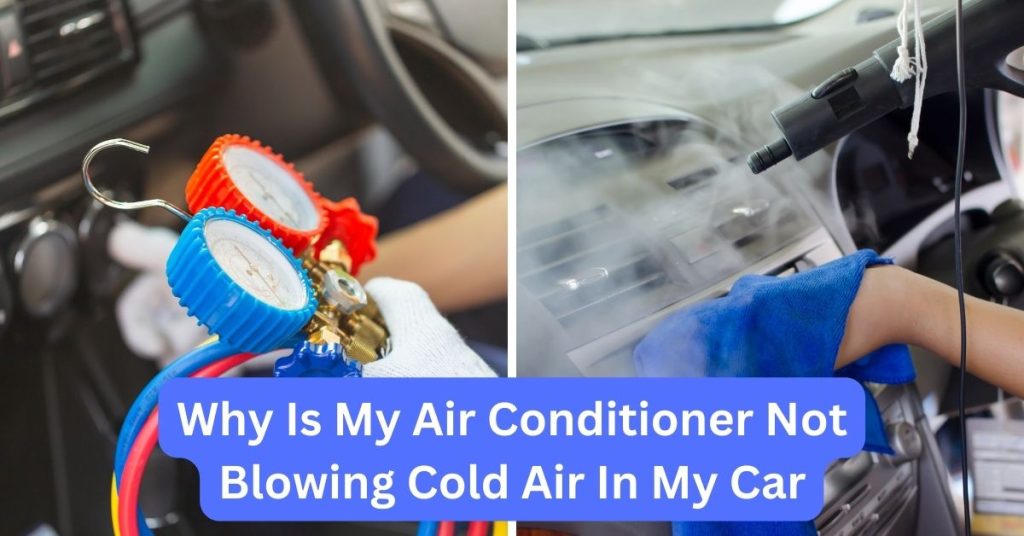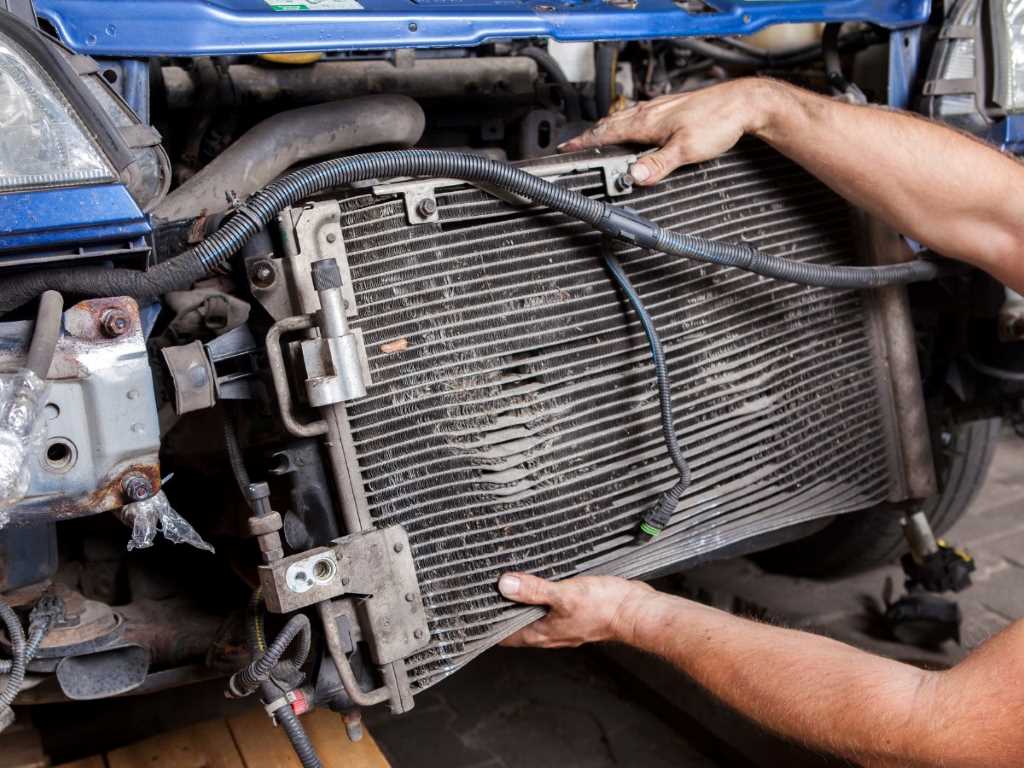Why Is My Ac In Car Not Blowing Cold Air

Frequently Asked Questions: Why Is My Car AC Not Blowing Cold Air?
Is your car's AC system leaving you sweating instead of refreshed? You're not alone. A car AC blowing warm air instead of cold is a common problem. This FAQ addresses the most frequent questions about why this happens and what you can do about it.
Q1: Why is my car AC blowing warm air, even when the AC is turned on full blast?
There are several possible reasons for this frustrating situation. The most common culprits include:
- Low Refrigerant: Refrigerant is the lifeblood of your AC system. A leak, even a small one, can cause the refrigerant level to drop, reducing the system's cooling capacity. This is the most frequent cause.
- Faulty Compressor: The compressor is the pump that circulates refrigerant. If it's failing or broken, it won't be able to compress the refrigerant, resulting in warm air. A broken compressor is a serious issue and requires professional attention.
- Clogged Condenser: The condenser dissipates heat from the refrigerant. If it's blocked by debris (leaves, bugs, etc.), it can't do its job effectively, leading to warm air.
- Broken Cooling Fans: The cooling fans, usually located in front of the radiator and condenser, help to remove heat. If these fans aren't working, the AC system will struggle to cool the air, especially when the car is idling or moving slowly.
- Electrical Issues: Problems with the wiring, fuses, or relays can prevent the compressor or other components from functioning correctly. A blown fuse is a relatively easy fix, but more complex electrical problems will require professional diagnosis.
- Stuck or Faulty Blend Door: The blend door mixes hot and cold air to achieve the desired temperature. If it's stuck in the "hot" position, you'll get warm air regardless of the AC setting.
- Expansion Valve Problem: The expansion valve controls the flow of refrigerant into the evaporator. If it's clogged or malfunctioning, it can restrict refrigerant flow and reduce cooling performance.
Q2: How can I tell if my car's AC is low on refrigerant?
Here are a few telltale signs indicating low refrigerant levels:
- Weak Airflow: If the air coming from the vents is noticeably weaker than usual, even when the fan is on high, it could be a sign of low refrigerant.
- Warm Air: As mentioned earlier, warm air is a primary symptom. The AC simply won't blow cold air.
- Hissing Sound: You might hear a hissing sound coming from the AC system, especially when you first turn it on. This can indicate a refrigerant leak.
- Visible Leaks: While less common, you might spot oily residue near the AC compressor or other components, indicating a leak. However, refrigerant leaks are usually not visible.
- Compressor Not Engaging: The AC compressor should cycle on and off. If it's not engaging at all, it could be due to low refrigerant, as a safety mechanism prevents the compressor from running when refrigerant levels are too low.
Important: While you can purchase refrigerant recharge kits at auto parts stores, it's generally recommended to have a professional diagnose and repair refrigerant leaks. Simply adding refrigerant without fixing the underlying leak is a temporary solution and can potentially damage your AC system further.
Q3: What is the AC compressor, and why is it so important?
The AC compressor is the heart of your car's air conditioning system. Its primary function is to:
- Compress Refrigerant: The compressor takes low-pressure refrigerant gas and compresses it into a high-pressure, high-temperature gas.
- Circulate Refrigerant: It pumps the refrigerant through the entire AC system, allowing it to absorb heat from the cabin and release it outside.
Without a functioning compressor, the AC system simply won't work. A failing compressor can exhibit symptoms such as:
- Loud Noises: Grinding, squealing, or rattling noises coming from the compressor area.
- Intermittent Cooling: The AC might blow cold air sometimes but not others.
- No Cooling at All: The most obvious symptom – warm air blowing from the vents.
Replacing a compressor is a significant repair, so it's crucial to have it properly diagnosed by a qualified mechanic.
Q4: My car AC blows cold air initially, but then it gets warm after a few minutes. What could be causing that?
This intermittent cooling issue often points to a problem that only manifests after the system has been running for a while. Here are a few possibilities:
- Overheating Compressor: The compressor might be overheating due to low refrigerant, a faulty clutch, or internal damage. As it heats up, its efficiency decreases, leading to warm air.
- Clogged Condenser: If the condenser is partially blocked, it might provide adequate cooling initially, but as the system operates, the blockage restricts airflow further, causing the cooling performance to drop.
- Expansion Valve Issues: A malfunctioning expansion valve might be restricting refrigerant flow intermittently.
- Electrical Problems: A loose connection or a failing relay could cause the compressor to shut off or operate at reduced capacity after a certain period.
- Moisture in the System: Moisture can freeze in the expansion valve, restricting refrigerant flow and causing intermittent cooling.
A professional diagnosis is recommended to pinpoint the exact cause.
Q5: Can I fix my car AC myself, or should I take it to a mechanic?
Some AC problems are relatively easy to fix yourself, while others require professional expertise. Here's a general guideline:
DIY-Friendly Fixes:
- Replacing a Blown Fuse: Check the fuse box for any blown fuses related to the AC system and replace them. Consult your owner's manual for the fuse location.
- Cleaning the Condenser: Use a garden hose (with low pressure) to gently rinse away any debris blocking the condenser fins. Be careful not to damage the fins.
Professional Help Recommended:
- Refrigerant Leaks: Diagnosing and repairing refrigerant leaks requires specialized equipment and expertise. Handling refrigerant also requires certification.
- Compressor Problems: Compressor repairs or replacements are complex and require specialized tools.
- Electrical Issues: Diagnosing and repairing electrical problems in the AC system can be challenging and requires a good understanding of automotive electrical systems.
- Expansion Valve Problems: Requires specialized tools and knowledge to properly diagnose and replace.
Safety Note: Working with refrigerant can be dangerous. It's a good idea to leave it to the professionals, as they have the proper tools, equipment, and training.
Q6: How much does it typically cost to repair a car AC that's not blowing cold air?
The cost to repair a car AC system can vary significantly depending on the underlying problem. Here's a rough estimate:
- Refrigerant Recharge: $100-$300 (However, remember this is only a temporary fix if there's a leak.)
- Compressor Replacement: $500-$1500+ (Includes the cost of the compressor, labor, and potentially other related parts.)
- Condenser Replacement: $300-$800+ (Includes the cost of the condenser and labor.)
- Expansion Valve Replacement: $200-$600+ (Includes the cost of the valve and labor.)
- Electrical Diagnosis and Repair: $100-$500+ (Depends on the complexity of the electrical problem.)
Important: Always get a written estimate from a reputable mechanic before authorizing any repairs. The estimate should clearly outline the problem, the parts required, and the labor costs.
Q7: How can I prevent my car AC from breaking down in the future?
Preventative maintenance can significantly extend the life of your car's AC system and help you avoid costly repairs. Here are a few tips:
- Regular Use: Run your AC system for a few minutes each month, even during the winter. This helps circulate the refrigerant and lubricate the compressor, preventing seals from drying out and cracking.
- Visual Inspection: Periodically inspect the condenser for debris and clean it as needed.
- Professional Checkups: Have your AC system inspected by a qualified mechanic at least every other year. They can check the refrigerant level, inspect the components for leaks or damage, and perform any necessary maintenance.
- Address Problems Promptly: If you notice any signs of AC problems (weak airflow, warm air, unusual noises), address them as soon as possible to prevent them from escalating into more serious issues.
- Use the Correct Refrigerant: Make sure your car's AC system is using the correct type of refrigerant. Using the wrong refrigerant can damage the system.
By following these tips, you can keep your car AC system running smoothly and enjoy cool, comfortable driving for years to come.










